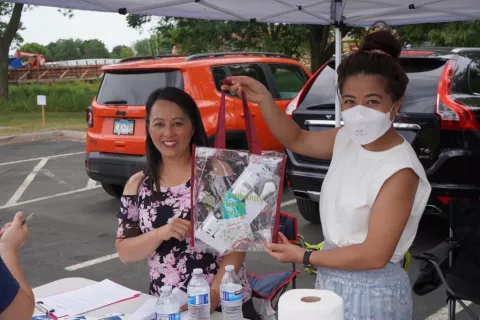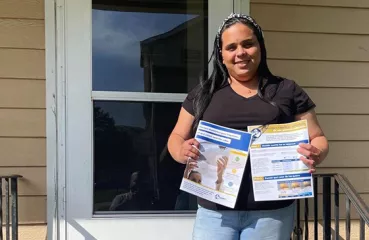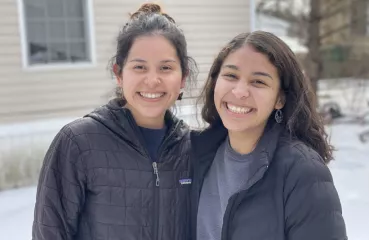Connection and understanding are important cornerstones of CEED’s work in underserved communities. This project gave CEED the opportunity to better understand the energy vulnerabilities that Southeast Asian communities are experiencing through connections and meaningful conversations. Energy vulnerability refers to the condition of being at risk for experiencing high energy costs and other negative impacts related to energy access, such as health issues and environmental concerns. This vulnerability can be influenced by factors such as income level, housing quality, and energy efficiency of appliances and systems. In some cases, vulnerable populations may lack access to resources and information needed to manage their energy consumption and costs, leading to increased financial burden and potential health hazards.
Through energy outreach conversations, Phitz provides printed and digital fact sheets about energy usage and savings. She and CEED want to ensure that alongside the energy education, community members receive tools to immediately begin implementing cost and energy saving changes in their homes. Participating community members receive home energy savings starter packs that include LED light bulbs, window insulation shrink kits, and surge protector power strips.
These starter packs and other incentives like gift cards are offered to folks who take an energy survey. Through these surveys, CEED finds that many participants are not aware of their energy burden. Some are unsure about the percentage of gross household income spent on energy costs. Others report spending anywhere from 3% to as high as 15%. More than half of participants report they have challenges paying electric and gas bills.
Phitz is known affectionately as the ‘LED Light Bulb Lady.’ When she sees community members she’s met during outreach events, she always follows up with them. She often finds that the participants who took the energy kits home and replaced light bulbs or insulated windows are excited to report that they did see a difference in their energy bills. Phitz knows this is just the beginning of energy education for some folks and that each connection provides more understanding about their energy journey.





